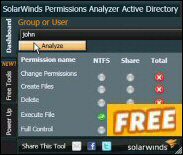Introduction to VBScript Echo Confirmation Message
The purpose of the WSH pop-up message is to let you know that the script has completed successfully. It can also give you valuable extra information, for instance, the number of objects created, and the container where they are ‘born’.
Example 1: To Echo the Name Set by the strComputer Variable
This is a very basic script, which fits with my aim to start simply.
Prerequisites
This script is suitable for most Windows clients going right back to XP, W2K, even NT 4.0 and Win 9x.
Instructions for Creating your WMI Script
- Copy and paste the example script below into notepad or a VBScript editor.
- Decide the name of the machine on line 8.
- Save the file with a .vbs extension, for example: Simple1.vbs.
- Double click Simple1.vbs and check the UserName.
Script to Demonstrate the Basics of VBScript Echo
‘ Simple1.vbs
‘ Sample VBScript Echo to display the ComputerName
‘ Author Guy Thomas https://computerperformance.co.uk/
‘ Version 1.5 – November 2010
‘ ————————————————–‘
Option Explicit
Dim strComputer
strComputer = "LocalHost"
WScript.Echo "Computer: " _
& strComputer
WScript.Quit
‘ End of VBScript example.
Example 2: Script to Test WScript.echo
If we use the script below as our ‘vehicle’ then we can experiment with WScript.Echo messages to confirm that the script worked properly.
What the script does is to create ten users in an OU called BulkGuy. It should work in any domain. If you do not have a domain available then adapt the WSCript.echo method to a simpler script.
‘ VBScript to create an OU called BulkGuy
‘ VBScript then creates 10 Users in OU BulkGuy
‘ Guy Thomas – January 2004
Dim objRoot, objDomain, objOU, objContainer
Dim strName
Dim intUser
strName =”BulkGuy”
Set objRoot = GetObject(“LDAP://rootDSE”)
Set objDomain = GetObject(“LDAP://” & objRoot.Get(“defaultNamingContext”))
Set objRootDSE = GetObject(“LDAP://rootDSE”)
Set objOU=objDomain.Create(“organizationalUnit”, “ou=BulkGuy”)
objOU.Put “Description”, “Guy’s Bulk Users OU”
objOU.SetInfo
Set objContainer = GetObject(“LDAP://OU=BulkGuy,” & _
objRootDSE.Get(“defaultNamingContext”))
For account = 1 To 10
Set objLeaf = objContainer.Create(“User”, “cn=” & strName & account)
objLeaf.Put “sAMAccountName”, strName & account
objLeaf.SetInfo
intUser = intUser +1
Next
WScript.Echo “10 Users created BulkGuy”
WScript.quit
Using the WScript.Echo method to pop-up a message.
‘ Plain String message
WScript.Echo “10 Users created BulkGuy”
Note 1: It is the command .Echo that WScript actually uses to produces a message box. WScript.quit has a very different meaning.
Guy Recommends: Permissions Analyzer – Free Active Directory Tool
I like thePermissions Monitor because it enables me to see quickly WHO has permissions to do WHAT. When you launch this tool it analyzes a users effective NTFS permissions for a specific file or folder, takes into account network share access, then displays the results in a nifty desktop dashboard!
Think of all the frustration that this free utility saves when you are troubleshooting authorization problems for users access to a resource. Give this permissions monitor a try – it’s free!
Download Permissions Analyser – Free Active Directory Tool
Improvement: Introducing the variable intUser into the .Echo method.
‘ Variable intUser added for extra information
WScript.Echo intUser & ” 10 Users created BulkGuy”
Note 1: The key is to have the intUser variable inside the For….Next loop
Note 2: To join the variable with the string use ampersand (&) not plus. This method is called concatenation.
Note 3: The space between the speech marks and the 10 is trivial item, but it improves readability.
If you like this page then please share it with your friends
See more VBScript WMI examples:
• WMI Tutorial • Win32_Process • WMI Memory • WMI Basics • Free Download of WMI Monitor
• WMI VBS • VBScript Services • WMI Disks • WMI Physical Disks
• WMI Home • WMI Win32 • WMI Printer • VBScript Echo • WMI VBScript
